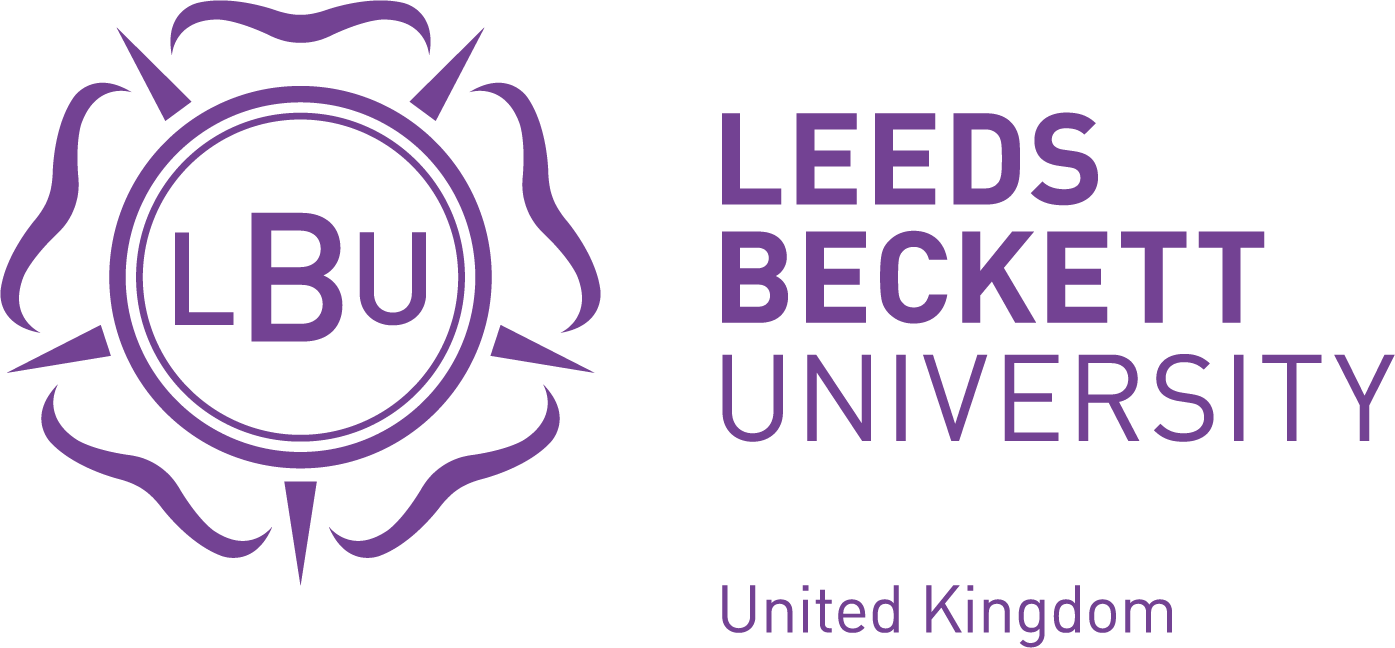BSc Hons Computer Science, really suitable for me to build a Successful Tech Career?

Imagine the year 2034. Nepal's "IT Decade" initiative has just wrapped up, creating a staggering 1.5 million new tech jobs and bringing in a remarkable NPR 3 trillion from IT exports. The tech industry has become a core part of the national economy. Now, think about your future. Are you going to watch this revolution from the sidelines, or will you be at its heart?
Deciding on a bachelor’s degree is one of the biggest choices of your life. It's about more than just getting a job; it's about building a career that will grow with you. If you've been wondering about the BSc Hons Computer Science syllabus and whether a BSc computing course is the right path, you’ve come to the perfect place.
This blog is designed to help you make that decision. We'll explore what the course actually covers, how it compares to other degrees, and what kind of career outcomes you can expect. Whether you're a student, a parent, or simply curious about the future of tech education in Nepal, this guide will provide you with the clarity you need.
What is BSc Hons Computer Science? Understanding the Basics
A BSc Hons Computer Science is a comprehensive undergraduate degree that bridges the gap between scientific principles and practical industry applications. This three or four-year programme combines thorough academic learning with hands-on experience, preparing you for the rapidly changing technology sector.
Unlike traditional degrees, the "Hons" designation indicates a higher academic standard and often includes a final-year research project. BSc Hons Computer Science students dive deep into programming languages, algorithm design, database systems, and emerging technologies like artificial intelligence and cybersecurity.
Core Components of the BSc Hons Degree
A BSc Computer Science honours course outline is structured to build your expertise step by step. Think of these as the building blocks for your career. Some of the main parts of the degree include:
- Programming Fundamentals: You'll learn to code in popular languages like Python, Java, and C++.
- Data Structures & Algorithms: These are the core problem-solving techniques that help you write efficient, powerful code.
- Database Management: You'll master systems like SQL and NoSQL, which are crucial for managing and organising data.
- Networking & Cybersecurity: This is all about understanding how computers talk to each other and how to protect digital information from threats.
- Software Engineering: You'll learn how to design, build, and manage large software projects from start to finish.
- Specialisations: Many programmes allow you to specialise in exciting fields like Artificial Intelligence (AI), Machine Learning (ML), Cloud Computing, and Data Analytics.
Difference Between B.Sc. IT and Computer Science
When you start looking at a computer science syllabus in Nepal, you will notice a key difference between local degrees (like BSc CSIT, BIT, and BCA) and British-affiliated ones. While local degrees are excellent, the British education system has a few things that make it stand out.
The main difference lies in the approach and international recognition. British degrees focus on independent learning, critical thinking, and practical application. Students are encouraged to work on projects that solve real-world problems, rather than just studying for exams. This project-based learning is a massive part of the BSc computing course experience. In contrast, many local programmes still rely more on theoretical exams and rigid curricula.
A British-partnered BSc Hons Computer Science syllabus also includes modules that are regularly updated to reflect industry trends. This means you will study ethical hacking, machine learning, or DevOps; topics that are often missing from traditional syllabi. This modern approach prepares graduates for both local and international job markets.
What You'll Actually Study in the BSc Hons Computer Science Syllabus?
The BSc Hons Computer Science Syllabus is designed to transform you from a beginner into a skilled problem-solver in three to four years. The programme is a mix of theory and hands-on practice. You will master programming languages like Python and Java, alongside crucial concepts like computational thinking and algorithm analysis.
Furthermore, at colleges partnered with British universities, the curriculum is constantly updated. This means you won’t be learning outdated material. You will study new technological language for machine learning, cloud computing, and mobile app development, ensuring your skills are in high demand the moment you graduate.

Year-wise Course Breakdown
- Year 1: You'll learn the basics of programming, math for computing, databases, and simple web development.
- Year 2: You'll move on to advanced programming, software engineering, operating systems, and computer networks.
- Year 3: You'll get to specialise in AI, cybersecurity, or data science, work on a major project, and take elective courses.
This breakdown is a general guide, as each college's BSc Hons computing syllabus details may vary slightly. The key focus remains on combining theory with practical, hands-on application.
Practical Projects and Lab Work
Hands-on projects are a huge part of the learning experience. You will work on software development projects, create AI simulations, build web applications, and work in networking labs. These projects help you build a portfolio that showcases your skills to potential employers.
Industry-Relevant Skills You'll Develop
The curriculum is constantly updated to keep up with the latest industry trends. You’ll develop skills that are driving the global tech industry, such as:
- Software Development:
From front-end to back-end development, you'll learn the skills to create all kinds of software. - Artificial Intelligence (AI) & Machine Learning (ML):
You'll get hands-on experience developing AI models and working with big data. - Cybersecurity & Digital Forensics:
You'll learn how to identify threats and protect digital systems. - Cloud Computing:
With many companies moving to the cloud, you'll learn how to manage and work with platforms like AWS and Azure.
What are the differences between BSc IT and Computer Science?
Knowing the difference between BSc IT and computer science helps students choose the right path for their career goals. While both fields involve technology, they have different focuses and lead to different jobs.
Think of it this way: Computer Science is a scientific degree. It focuses on the mathematical principles and algorithms that make computers work. You will spend a lot of time on abstract concepts and learn how to design new software and systems from scratch. The goal is to get you ready for jobs in research, software engineering, and solving complex technical problems.
Information Technology (IT), on the other hand, is more focused on the practical use of technology in a business setting. It’s about managing existing IT systems, maintaining networks, and resolving daily technical issues for a company. You'll learn skills like network administration and database management. It’s a perfect fit if you enjoy working directly with people and technology to keep a company running smoothly.
In Nepal, both degrees are highly valued, but the job roles are distinct. For those who want to be at the cutting edge of tech innovation, the BSc Hons Computer Science syllabus is designed to give you that foundation.
Career Focus: Theory vs Application
A BSc Computer Science is a more theoretical and scientific degree. It focuses on the mathematical principles and algorithms that make computers work. You’ll spend more time on abstract concepts and how to design entirely new software and systems. The goal is to prepare you for roles that involve research, software engineering, and solving complex, technical problems. It's a great choice if you love solving puzzles and creating things from scratch.
On the other hand, BSc IT (Information Technology) is more focused on the practical use of technology in a business environment. It’s about managing existing IT systems, maintaining networks, and solving daily technology problems for an organisation. You'll learn skills like IT management, network administration, and database management. It's a perfect fit if you enjoy working directly with people and technology to keep a company running smoothly.
Job Market Demand in Nepal and Abroad
The job market for both degrees is strong, but the types of jobs are different. The software market in Nepal is projected to reach $175.40 million by 2029, with a high demand for skilled professionals.
For BSc Computer Science graduates, the opportunities are often in roles that involve a lot of development and problem-solving, like Software Developer or Engineer, AI Specialist, Web or Mobile App Developer, and Data Scientist.
International opportunities are favourable for computer science graduates, particularly for software development and research positions. Many Nepali computer science graduates find employment in countries like Australia, Canada, and the USA. The theoretical foundation helps with visa applications requiring skills assessment.
Which Course Suits You Based on Your Learning Style?
Students who enjoy mathematical problem-solving and abstract thinking often prefer computer science. If you find satisfaction in creating something new or understanding how systems work fundamentally, computer science might suit you better. The course requires patience for debugging complex code and persistence through challenging theoretical concepts.
IT appeals to students who prefer hands-on problem-solving and direct interaction with users. If you enjoy helping others with technology problems or making existing systems work better, IT could be more suitable. The curriculum involves more practical workshops and less theoretical study.
Is BSc Computer Science a Good Course?
The short answer is yes, absolutely! The question "Is BSc computer science a good course?" is a valid concern, but the data provides a compelling answer. The tech industry in Nepal is booming. The ICT sector's value-added growth rate is projected to reach 6% for FY 2024/25, showing its increasing importance to the national economy. With a BSc Hons Computer Science degree, you're not just ready for a job; you’re ready for a fulfilling, high-earning career.

Employment Statistics and Success Stories
Nepal’s IT industry is experiencing rapid growth. The government has even announced the "IT Decade" from 2024 to 2034, with a goal to create 1.5 million tech jobs and export NPR 3 trillion worth of IT services. A degree from The British College, with its focus on international standards, gives you a major advantage. Let's look at a couple of inspiring examples:
Rabi Gorkhali, alumnus from the Class of 2018, is a highly accomplished Senior Backend & GIS Developer with over 8 years of experience. He is a multi-talented professional who has made significant contributions to both the tech industry and social welfare. He has played a key role in the humanitarian National Ambulance GPS System for the Nepal Government. In his entrepreneurial role, he founded and serves as the president of the startup Vygotsky Nepal, while also working as a Senior Software Engineer and Manager at Sermonview and a Software Engineer at Eworks.
A recent graduate from the Class of 2024, Sujit Gyawali has already achieved notable success. He has leveraged his technical skills to take on key leadership roles as the IT Head and Business Manager for two of his family's businesses, Nepal Organic Coffee Products and Live Pharmaceuticals. Demonstrating his entrepreneurial spirit, he also co-founded his own streetwear brand, Yungflame, and has a professional role as a Digital Marketing Executive at Eworks.
These stories show that a BSc computing course at “The British College” can open doors to entrepreneurship, innovation, and leadership roles.
Salary Expectations for Fresh Graduates
It's natural to think about money, and the good news is that IT professionals are some of the highest earners in the country. The average starting salary for a tech professional in a local company can be around NPR 30,000 per month. But with just a few years of experience, a mid-level developer can earn between NPR 50,000 to NPR 90,000 per month. What’s more, highly specialised roles like AI architects and data engineers can earn anywhere from NPR 8,50,000 to over NPR 30 lakhs per year.
Global Opportunities After BSc Hons
One of the biggest benefits of a BSc Hons degree is the door it opens to the rest of the world. With an internationally recognised degree, you can easily pursue a master’s degree abroad or apply for jobs in other countries. The degree from a British partner university is an excellent pathway to a master’s degree abroad.
Admission Requirements and Application Process
Before you can start, you need to know what you'll need to apply. Most BSc Hons Computer Science programs require you to have completed your +2 or equivalent with strong grades in mathematics and English.
- Academic Prerequisites: For most programs, you'll need to have completed your +2 or equivalent with an aggregate score of at least 55% or above. If you did your A Levels, you'll need a minimum of 3.5 credits with 3 full credits.
- English Proficiency: International programs often have additional English proficiency requirements, such as an IELTS score of 6.0 with no band less than 5.5.
- Application Process: The process usually involves submitting academic transcripts, a personal statement, and sometimes attending an interview. It's a good idea to check the specific requirements for the college you're interested in.
Career Opportunities After BSc Hons Computer Science
The best part about getting a BSc Hons Computer Science degree is the sheer number of career paths available to you. The tech industry is incredibly diverse, and your skills can be applied to almost any sector, from finance and healthcare to entertainment and education.

Popular Career Paths in Nepal
The tech job market in Nepal is booming, with a high demand for skilled professionals. With a BSc Hons Computer Science degree, you'll be well-prepared for roles in local and international companies. Some of the most popular career paths in Nepal include:
- Software Developer: This is one of the most common roles. You'll be responsible for designing, developing, and testing software applications.
- Mobile App Developer: With a high number of people using mobile devices, this is a very in-demand skill. You can work on creating apps for iOS or Android.
- Data Scientist: In today’s world, data is a valuable asset. Data scientists analyse large amounts of data to help companies make better decisions.
- Web Developer: Every business needs a website, and you'll have the skills to build one from the ground up, whether it's for a small business or a large e-commerce platform.
- IT Consultant: You can use your knowledge to advise businesses on the best technology solutions to improve their operations and efficiency.
- Cybersecurity Analyst: As businesses move online, they need protection from cyber threats. A cybersecurity analyst protects systems and networks from attacks.
International Job Market Opportunities
With a British degree, you can easily work for international companies without even leaving Nepal. Many foreign companies are outsourcing their work to Nepali professionals, and this trend is on the rise. This means you can get a global job with a global salary while staying here. With a strong skill set in areas like cloud computing, AI, and cybersecurity, you can work on projects for companies anywhere in the world.
Entrepreneurship and Startup Possibilities
Nepal is also seeing a rise in tech startups. With the right skills, you can become your own boss. Many graduates from this course go on to start their own companies, creating new apps, software, and services. The knowledge you gain in project management and system design will give you a solid foundation for starting your own business and contributing to Nepal’s growing tech ecosystem.
Course Fees and Scholarship Options
The cost of a degree is a major factor for any student. The course fees for a BSc (Hons) Computer Science degree can vary significantly depending on the college and its affiliation. A British degree, with its international recognition and quality, can sometimes have a higher fee structure than a local degree. However, many colleges offer scholarships and financial aid to help students.
The good news is that you don’t have to break the bank to get a quality education. Many colleges have a range of payment plans and financial aid options to make the degree more affordable. You should always talk to the college's financial aid office to see what options are available to you.
How to Prepare for BSc Hons Computer Science
Getting ready for a BSc Hons Computer Science course is about more than just studying. It’s about building a solid foundation and a passion for technology. If you're still in your +2 or have just finished, a little bit of preparation can go a long way.
- Learn a Programming Language: You don't need to be a coding expert, but learning a simple language like Python can give you a huge head start.
- Improve Your Problem-Solving Skills: Computer science is all about solving puzzles. Practice with logic and think about how you could automate simple tasks.
- Build a Small Project: Try to create a simple website or app. This hands-on experience will not only help you learn but will also look great on your college application.
Frequently Asked Questions About BSc Hons Computer Science
Is BSc Hons Computer Science recognised internationally?
Yes, a British BSc Hons degree is recognised all over the world. This makes it a great choice if you want to work or study abroad in the future.
What's the difference between BSc CSIT and BSc Hons Computer Science?
BSc CSIT is a popular local degree with a strong theoretical and practical base. A BSc Hons degree, especially a British one, is often more focused on practical, industry-relevant skills and has international recognition.
How difficult is the course for average students?
The course is challenging, but it is not impossible. With the right support from your teachers and a passion for technology, any student can succeed. The focus on practical projects helps to make learning fun and engaging.
What are the job prospects in the government sector?
The Nepali government is rapidly adopting digital services, and this is creating a demand for skilled IT professionals. With a BSc Hons degree, you can find a job in various government departments that are undergoing digital transformation.
Can I do my master's abroad after this degree?
Yes, a BSc Hons degree from a British university partner is an excellent pathway to a master’s degree abroad. The international recognition of the degree makes the application process much smoother.
Is programming experience necessary before joining?
No, it is not. The first year of the course is designed to teach you the fundamentals from scratch. However, having some basic knowledge can give you a head start and make the learning process easier.
How is the course different from BIT or BCA?
BIT and BCA degrees are generally more focused on the business and application side of IT. The BSc Hons Computer Science degree focuses more on the scientific and engineering aspects of building and creating technology.







